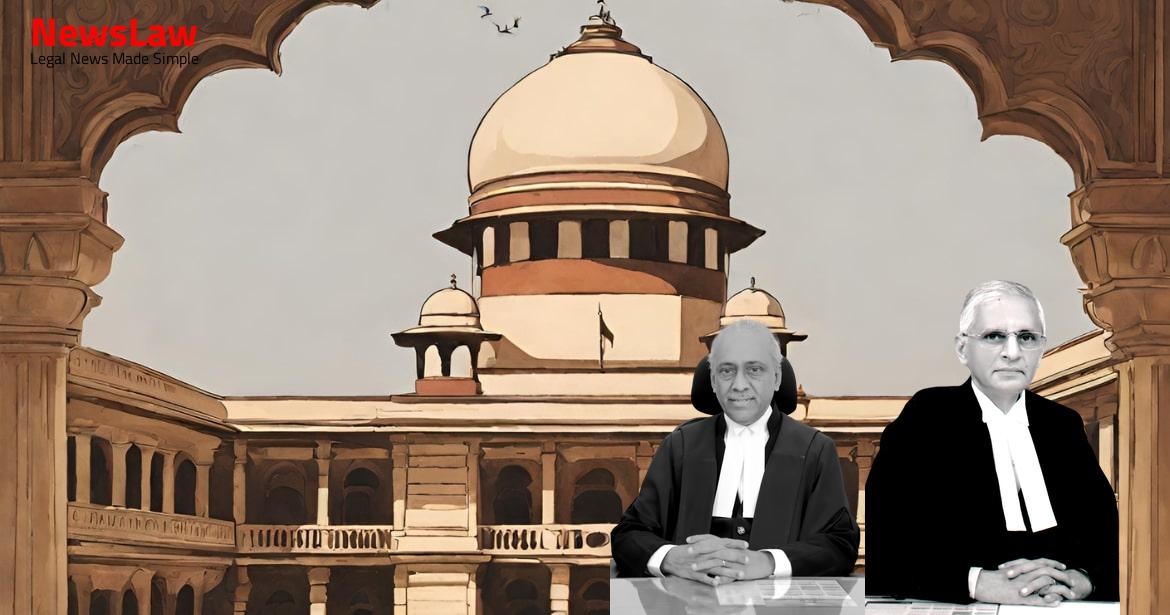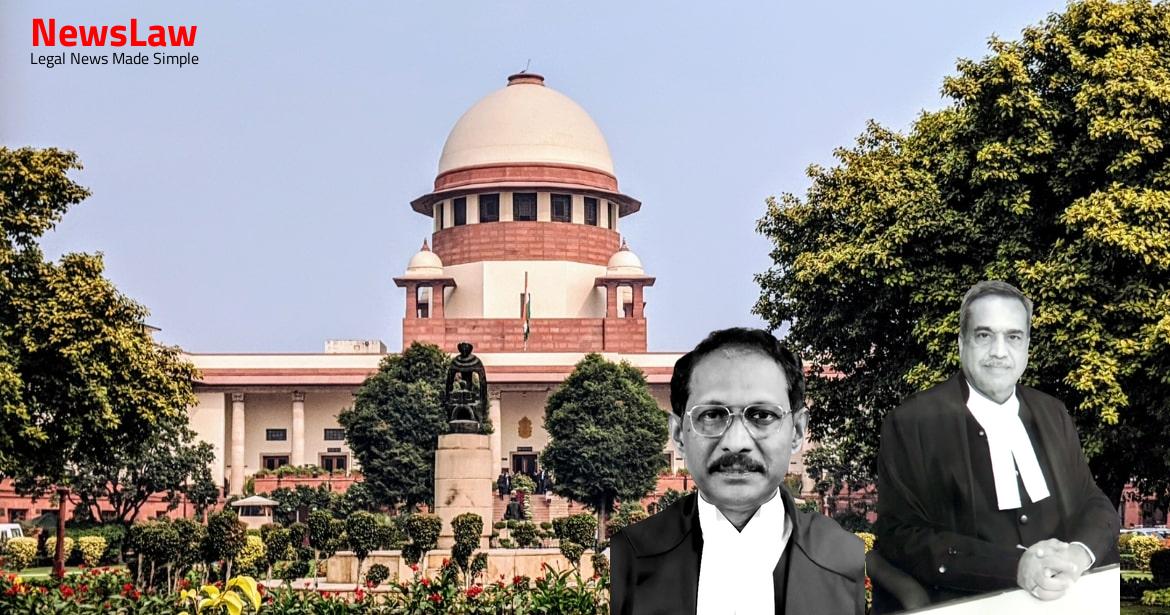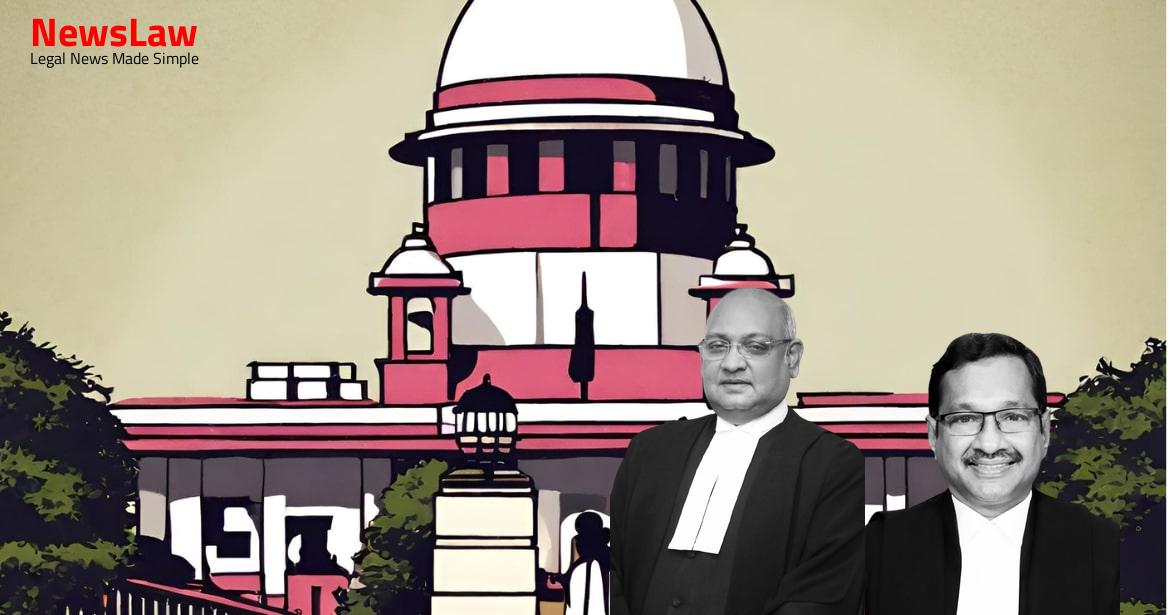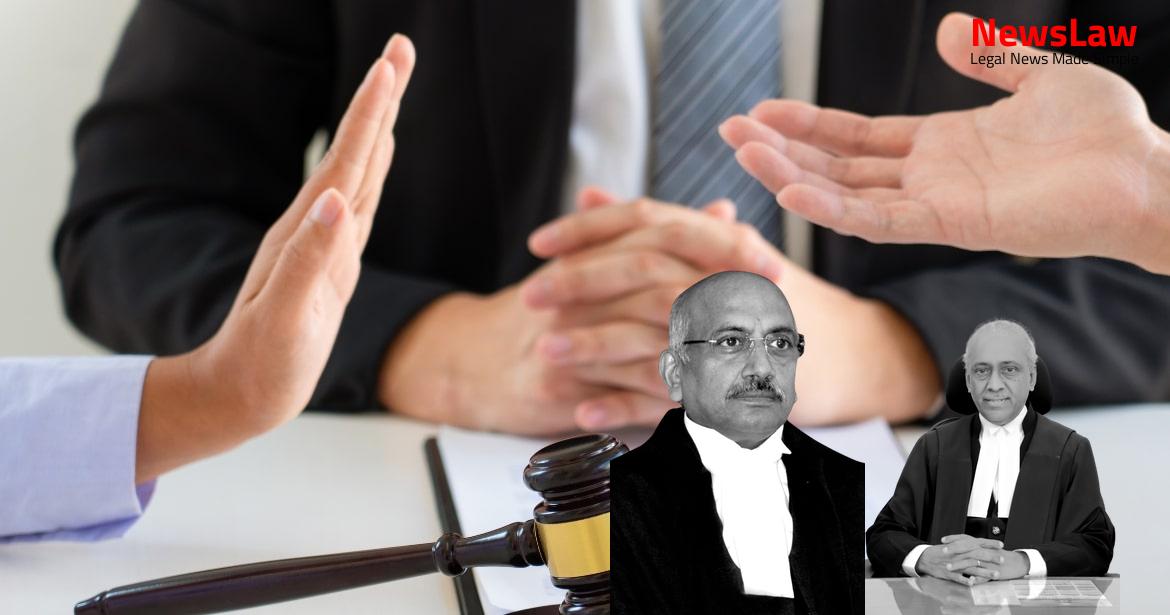In a recent legal case, the Court delved into the critical aspect of ‘the proper officer’ in customs duties recovery matters. The detailed analysis sheds light on the specific requirements and limitations of this designation in administrative actions related to import duties. Understanding the nuances of this authority is essential for stakeholders and practitioners in the customs law domain.
Facts
- The batch of statutory appeals under Section 130E of the Customs Act, 1962 arises from a common final order of the CESTAT dated 19 December 2017.
- The impugned order upheld the denial of exemption of basic customs duty on Digital Still Image Video Cameras imported by Nikon India Pvt. Ltd. and other appellants.
- The consequential confiscation of goods, demand of interest, and imposition of penalty were also upheld by the CESTAT.
- The events related to Nikon’s case are specifically referred to for convenience in the judgment.
Also Read: Electoral Malpractices in Mayor Election
Analysis
- The show cause notice was issued on 19.8.2014 under Section 28(4) of the Customs Act.
- It is argued whether the recovery proceedings initiated by the Directorate of Revenue Intelligence are valid after goods were cleared as exempted under Notification No.15/2012.
- The power to re-open assessment or recover duties has only been shown to be conferred on the officer who initially assessed the goods.
- The Additional Director General of DRI was not the proper officer to exercise power under Section 28(4) as he was from a different department.
- The power to determine duty not levied/not paid is conferred only on ‘the proper officer,’ indicating a specific officer, not any proper officer.
- It must be done in the way the statute directs, with ‘the’ designating a particular proper officer for such actions.
- The power to recover duties under Section 28(4) is an administrative review of an act and must be carried out by the same officer who assessed the goods.
- The Additional Director General of the DRI lacked authority to issue the recovery notice under Section 28(4) as he was not a proper officer.
- The use of the definite article ‘the’ before the word ‘agreement’ is significant in determining the specific agreement to be referred to.
- The word ‘the’ has a particularizing effect, as opposed to the generalizing force of ‘a’ or ‘an’.
- Parliament has not used ‘an agreement’ or ‘any agreement’ in the context, indicating that ‘the agreement’ refers to the implicit agreement in the sale occasioning the export.
- Referring to the decision in Consolidated Coffee Ltd. and Another vs. Coffee Board, Bangalore, it was noted that ‘the agreement’ would specifically refer to the agreement implicit in the transaction.
- The proper officer may serve a notice for payment of duties, interest, etc. when duty has not been levied, short-levied, or erroneously refunded.
- The notice must be served within one year for imports for personal use, by Government, educational, research, or charitable institutions; or within six months for all other cases.
- The ‘proper officer’ must be the officer of customs assigned those functions by the Board or the Commissioner of Customs.
- Only officers specifically assigned functions by the Board or Commissioner of Customs can be considered ‘proper officers’.
- The Central Government can entrust functions of the Board or customs officers to other officers by notification in the Official Gazette.
- If officers of the Directorate of Revenue Intelligence are to be entrusted with customs officers’ functions, it must be done through the Central Government’s notification under Section 6 of the Act.
- The extended period of limitation of five years was not available to any authority to re-open under Section 28(4)
- It is difficult to infer that there was any willful mis-statement of facts in the circumstances
- The issue of whether the cameras were eligible for the exemption under Exemption Notification No.15/2012 is deemed unnecessary to answer
- The cameras cleared on the basis of exemption can be considered as validly cleared by the Customs officer
- Cameras with similar specifications have been treated as exempted under the Explanatory Note to the Combined Nomenclature of the European communities
Also Read: Balancing Power and Transparency: Electoral Bonds Struck Down, Disclosure Mandated
Decision
- The common order dated 19.12.2017 passed by the CESTAT, New Delhi in Customs Appeal Nos. 50098, 50099, 50100 and 50280/2017 is set aside.
- The impugned demand notices issued against all the three appellants are also set aside.
- The appellants have been considered eligible for exemption before 17.03.2012 and after 30.04.2015 under the exemption Notifications issued under the Customs Act read with Chapter 84 & 85 (First Schedule) of Customs Tariff Act, 1975.
- As a result, these appeals are allowed.
Also Read: Recall of Resolution Plan Approval: Legal Analysis
Case Title: M/S CANON INDIA PRIVATE LIMITED Vs. COMMISSIONER OF CUSTOMS (2021 INSC 169)
Case Number: C.A. No.-001827 / 2018



